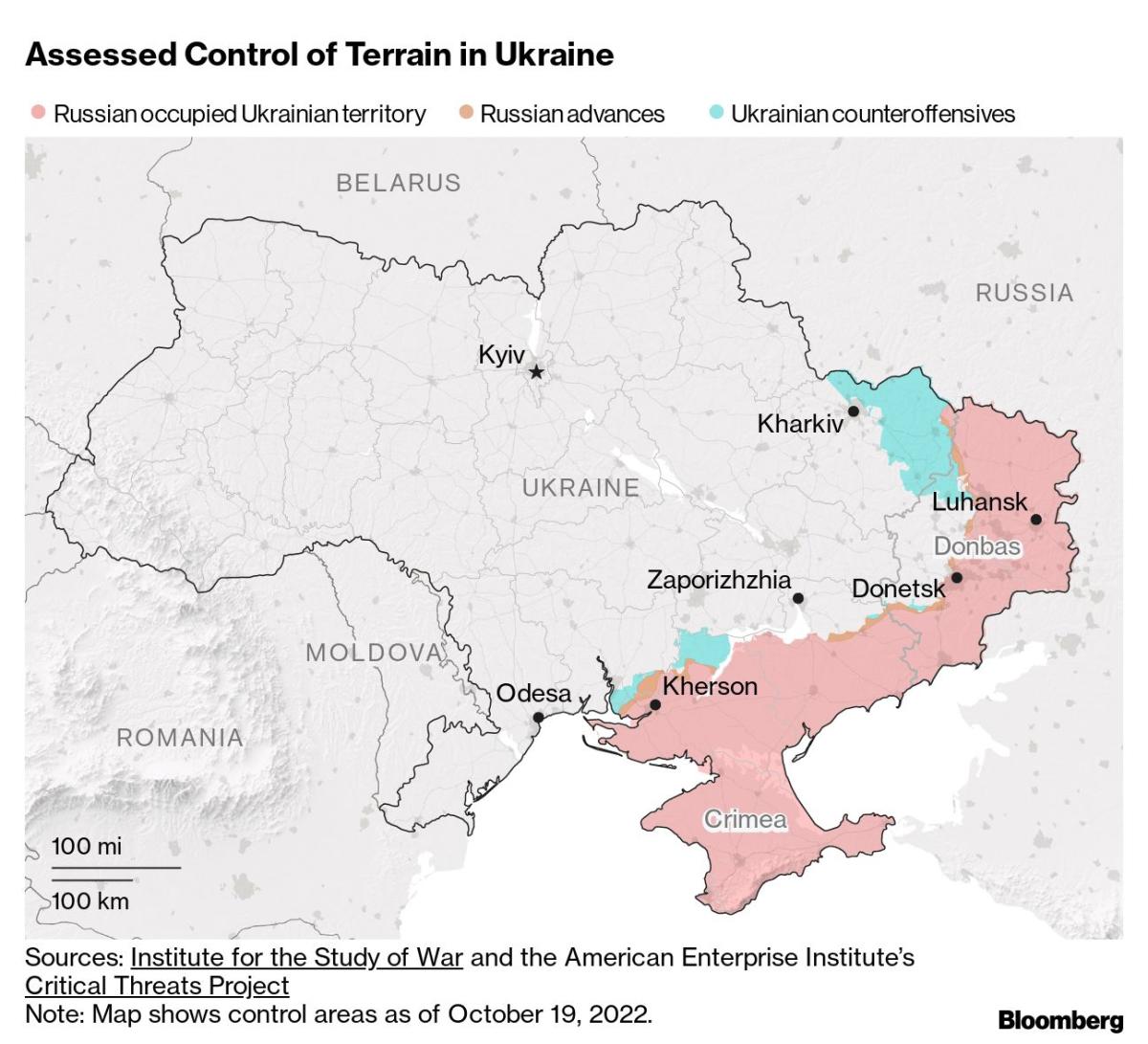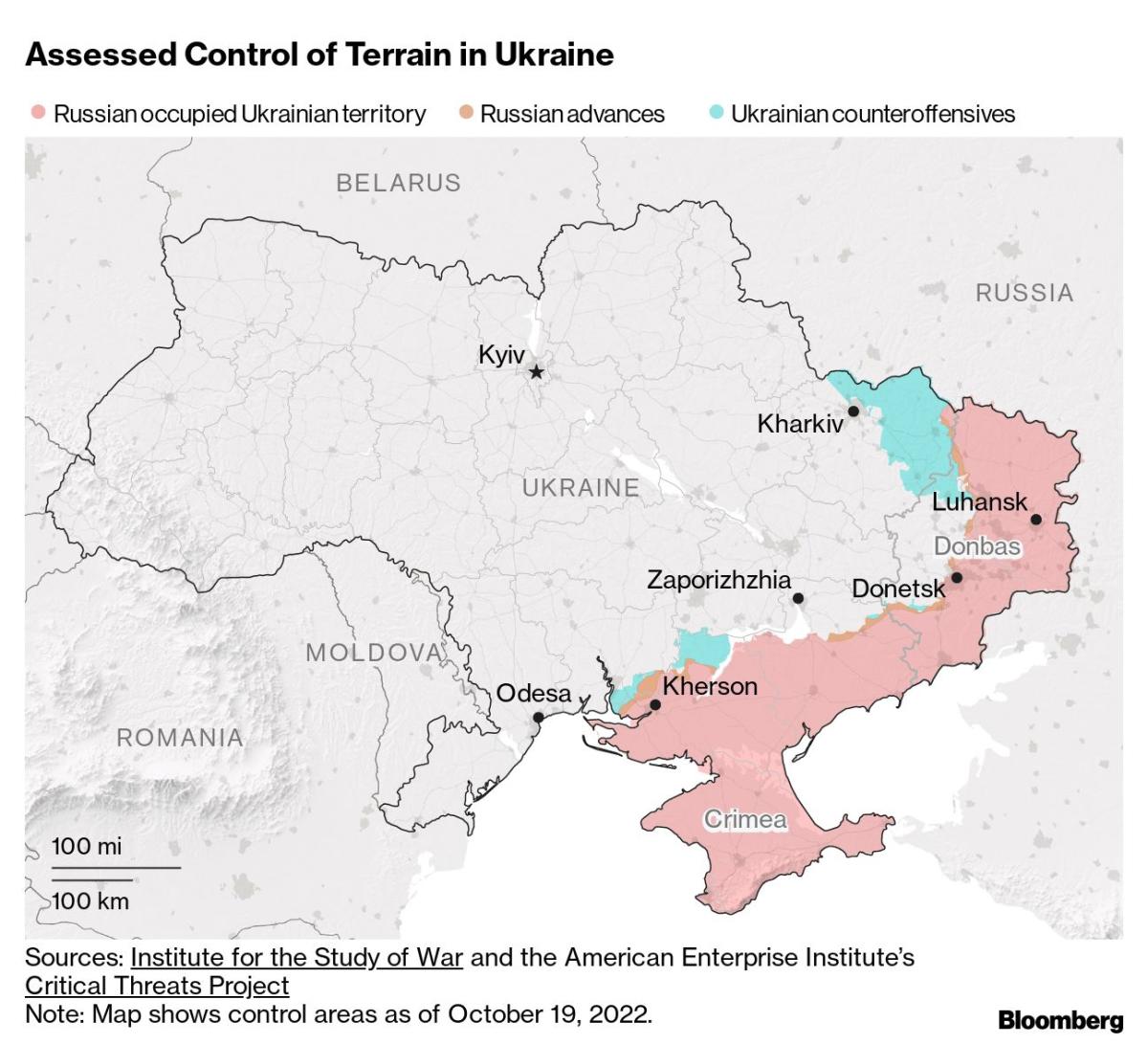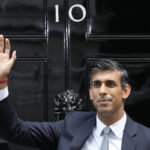
(Bloomberg) — Russian President Vladimir Putin is pursuing his war aims in Ukraine with a “religious” fervor and is unlikely to change course even as his eight-month invasion is beleaguered by setbacks, Estonia’s spy chief said.
Most Read from Bloomberg
Mikk Marran, Estonia’s outgoing espionage chief, said that the Baltic nation’s intelligence indicated that the Russian president isn’t having second thoughts about the conflict, despite the lack of strategic accomplishments and a firmer line from an expanded NATO.
“He’s still on a kind of a religious or a messianic mission — and we see that Putin is preparing his country and its army to continue fighting for a long time,” Marran, 44, told a group of reporters in Tallinn on Tuesday.
The assessment aligns with Putin’s escalation of the conflict in recent weeks, pressing forward with an illegal bid to annex four Ukrainian regions even as his forces are being pushed back by a robust counteroffensive in the eastern and southern parts of the country.
The Russian leader’s move to mobilize at least 300,000 reservists will have little effect this year, Marran said, but the Kremlin leadership views the call-up as potentially extending the conflict into mid-2023.
Estonian intelligence indicates that top Kremlin officials are concerned about how the mobilization is playing out in Russian media and the public debate — and pushing back against a new round of call-ups, Marran said.
Russia is relying on “Darwinist” principles, estimating that a “bulk” of mobilized troops will be killed or wounded — while a core of soldiers will become hardened fighters, the intelligence chief said.
Harsh Winter
“Russia’s attrition strategy is to make Ukrainians suffer as much as possible in the coming winter,” Marran said, referring to the increased attacks on energy infrastructure.
The Kremlin is also exploiting the threat of deploying its nuclear arsenal, particularly as a way to seize the initiative and dissuade the US and European governments to deliver weapons, he said. As military losses mount, the “nuclear option cannot be excluded,” he said.
Ukraine’s counteroffensive would bear fruit if it managed to push Russian forces back across the Dnipro River in the south, potentially liberating the city of Kherson, where the Kremlin has stationed some of its best troops, he said.
“That would be from our point of view a strategic breakthrough,” the spy chief said.
Marran, whose agency predicted Russia’s readiness for a full-scale invasion and who now expects that Kyiv will win the war, will leave office next week after seven years in the post.
Estonia, along with its Baltic neighbors, has been among NATO members who have been most vocal about intensifying pressure on Moscow.
For the Baltics, Moscow will remain a threat in eastern Europe regardless of the outcome of the war, with no indication that Kremlin’s foreign policy will change, Marran said. Russia will inevitably restore its military “sooner or later,” he said.
“Russia will continue seeing the Baltics as the weakest part of NATO, so Estonia, Latvia, Lithuania and Poland, together with our allies, must be ready to fend off any Russian attack in the future,” Marran said.
(Adds comments on counteroffensive, threat to Baltics, from ninth paragraph.)
Most Read from Bloomberg Businessweek
©2022 Bloomberg L.P.




